Over the years there have been some movies, which have been perfect in all senses and are considered timeless. Right from the opening scene to the last, they have become the apotheosis of a motion picture. The confluence of different aspects of filmmaking in the sweet spot has seen some of the most memorable cinema ever made. The au fait characters, the engaging storylines, and the seamless execution have made these movies timeless classics. Based on their success in the industry, many production houses and directors have attempted recreating these films on-screen. Capital greed and self-recognition have been the driving forces behind such undertakings and the results are far from satisfying.
Even though there have been a handful of movies which might have been a wee bit better than the originals, the majority have failed miserably. When a remake takes place, it is often the case that the new isn’t able to capture the essence of the original, and the latter loses its significance. Even though the characters are the same, the storylines a facsimile, and the memories intact, they just don’t have the magic of the original. Here is the list of movies that are so perfect they should never be remade.
20. Back To The Future (1985)
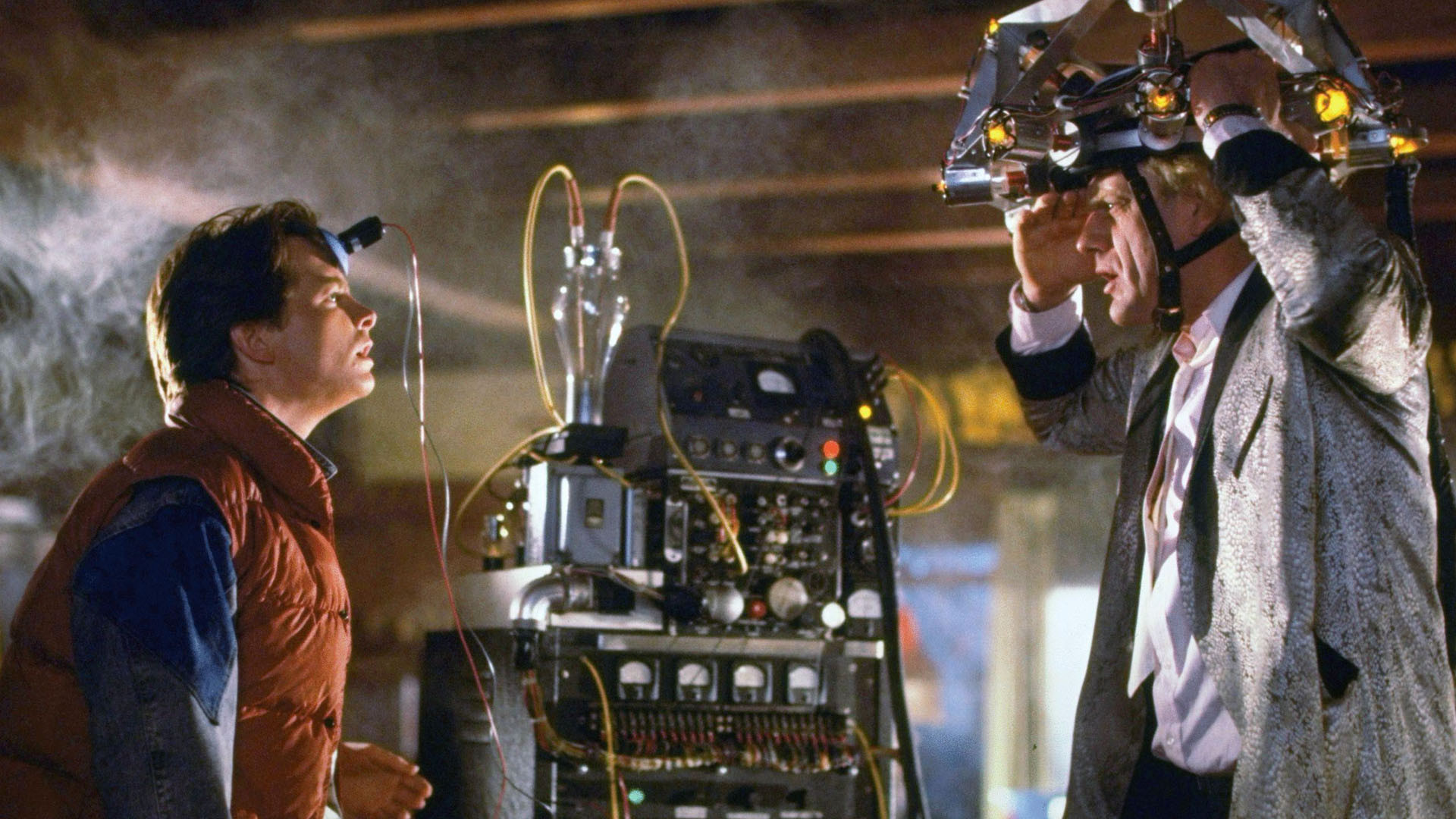
A teenager discovers time travel and can’t stop himself from using it (hormones). In the rewinded timeline, Marty McFly ends up meeting his parents and becomes his mother’s romantic interest. Now he has to rewrite history, or the future (what?) and an eccentric and selfish Doc Brown is his only chance at redemption. Will he be successful? At least the film was! ‘Back To the Future’ has been the benchmark for time travel and sci-fi movies since it was released. The film went on to gross 20 times its budget and became the highest-grossing film of the year. President Ronald Reagan in his 1986 State of the Union address said, “Never has there been a more exciting time to be alive, a time of rousing wonder and heroic achievement. As they said in the film Back to the Future, ‘Where we’re going, we don’t need roads’.” The scenes of Marty McFly skateboarding in the film occurred during the infancy of the skateboarding sub-culture and numerous skateboarders, as well as companies in the industry, pay tribute to the film for its influence in this regard. Truly a classic!
19. It’s A Wonderful Life (1946)
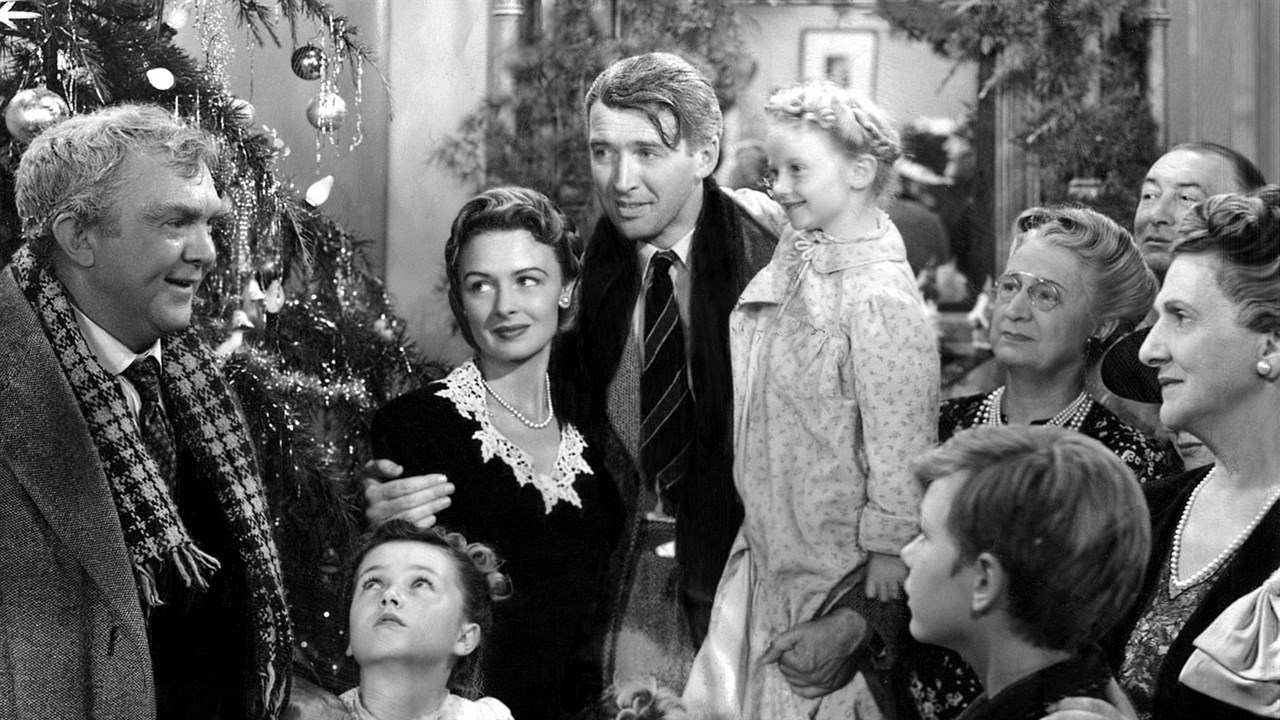
This was and is probably the only film Wikipedia characterizes as a “Christmas Fantasy.” The film is widely regarded as the most loved film of all time, and has also become a traditional viewing during the Christmas season. The film stars James Stewart as George Bailey, a man who has given up his dreams in order to help others and whose imminent suicide on Christmas Eve brings about the intervention of his guardian angel, Clarence Odbody (Henry Travers). Clarence shows George all the lives he has touched and how different life in his community of Bedford Falls would be had he never been born. Despite the film being a box-office failure, it’s significance and memorable scenes reiterate its status as one of the best films ever-made.
18. Edward Scissorhands (1990)

This character is perhaps Tim Burton’s universes’ most loved and cherished creation. Burton himself considers this to be his favorite work. The premise of the movie is an amalgamation of Burton’s childhood memories and his virtuoso imagination. It stars the protean Johnny Depp an artificial man named Edward, an unfinished creation who has scissor blades instead of hands. The young man is taken in by a suburban family and falls in love with their teenage daughter Kim (Winona Ryder). Then ensues a series of unexpected and hilarious instances, which are heart-felt and heart-breaking. The line in the final scenes of the movies, “Here it never snowed. Afterwards it did.” is still remembered as one of the most iconic lines of all time. Depp’s transformation into the character even today remains one of the most preposterous, yet memorable apparels. A perfect movie which should never be made again!
17. The Big Lebowksi (1998)
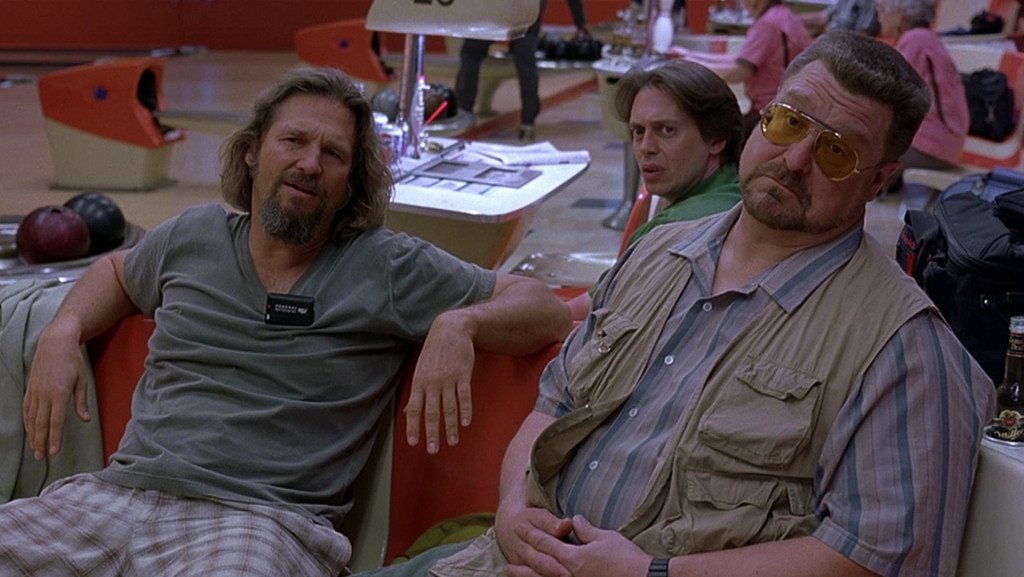
This is probably one of the most eccentric and iconic movies ever made. The movie is a cult favorite owing to its idiosyncratic characters, dream sequences, unconventional dialogue, and eclectic soundtrack. The premise follows Jeffrey “The Dude” Lebowski, an LA slacker and avid bowler, who is assaulted as a result of mistaken identity, after which The Dude learns that a millionaire also named Jeffrey Lebowski was the intended victim. The millionaire Lebowski’s trophy wife is kidnapped, and he commissions The Dude to deliver the ransom to secure her release; but the plan goes awry when the Dude’s friend Walter Sobchak (John Goodman) schemes to keep the ransom money. The black comedy and satirization of the LA scene in the late 1990’s has the iconic Coens’ touch. They take an imperfect and flawed idea, and transform it into one of the most perfect movie plots ever imagined.
16. Fight Club (1999)
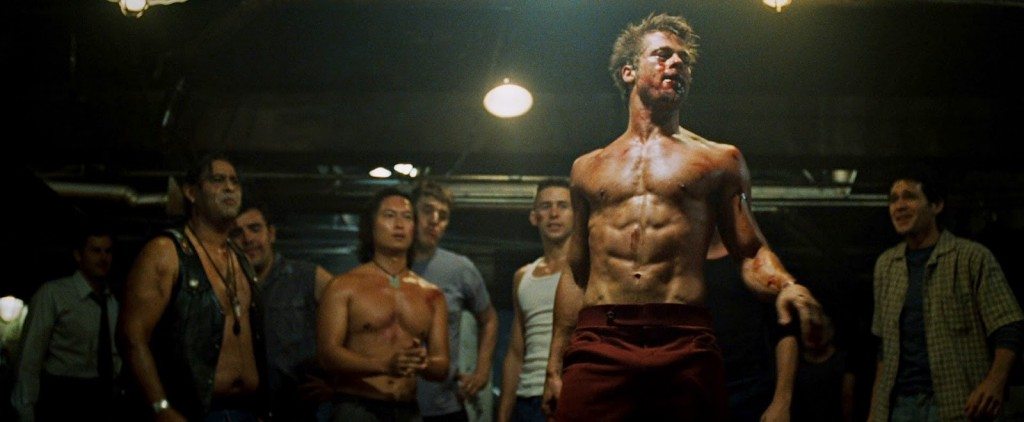
‘Fight Club’ is one of the most thought provoking and destructive films ever made. Directed by the mercurial David Fincher, the script has his usual condiments such as a non-linear narrative, an engaging plot-line, and a convoluted and harrowing ending. The star cast of the film features big names like Brad Pitt, Edward norton and Helena Bonham Carter. Norton plays the unnamed protagonist, referred to as the narrator, who is discontented with his white-collar job. He forms a “fight club” with soap maker Tyler Durden, played by Pitt, and they are joined by men who also want to fight recreationally. The narrator becomes embroiled in a relationship with Durden and a dissolute woman, Marla Singer, played by Bonham Carter. The ending even today features in the list of almost every top 10 movie endings. This perfect action-thriller flick is an ode to the common man, and his mundane lifestyle and approach to life.
15. Casablanca (1942)

‘Casablanca’ is an epitome of the maniacal and revered Hollywood cliched frippery. It is one of the most iconic films of all time, featuring timeless and memorable dialogues. Set during the advent of WWII, it focuses on an American expatriate who must choose between his love for a woman and helping her Czech Resistance leader husband escape the Vichy-controlled city of Casablanca to continue his fight against the Nazis. Humphrey Bogart and Ingrid Bergman even today remain perhaps the most iconic couple on the screen. The film was a critical and commercial success, going on to win the Academy Award for Best Picture and the Best Director for Michael Curtiz. The achieving of the perfect balance of comedy, drama and romance, coupled with the enduring craftsmanship of its resonantly hokey dialogue, it is one of the most perfect films ever made.
14. Forrest Gump (1994)
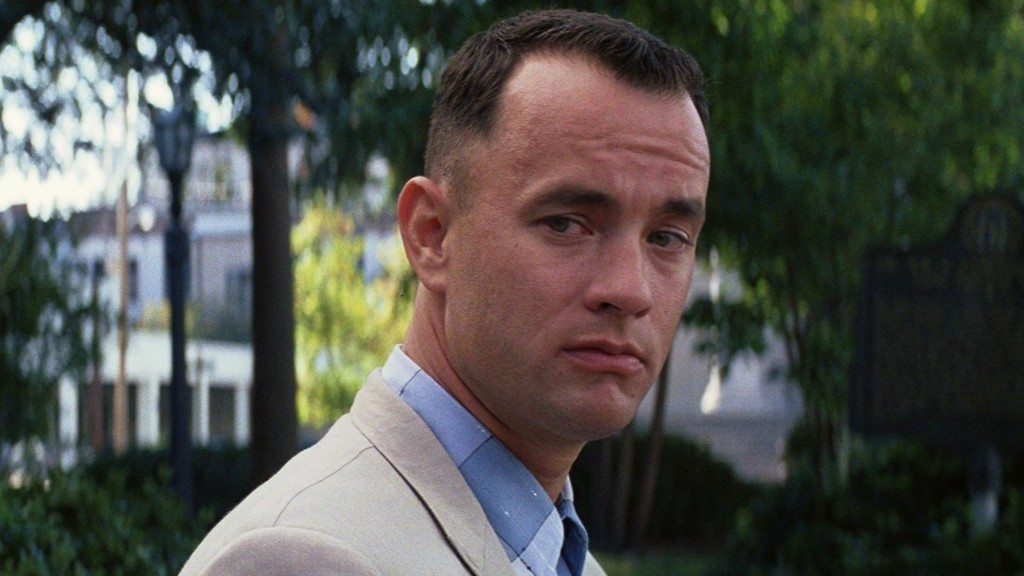
The story depicts several decades in the life of Forrest Gump, a slow-witted but kind-hearted, good-natured and athletically prodigious man from Alabama who witnesses, and in some cases influences, some of the defining events of the latter half of the 20th century in the United States; more specifically, the period between Forrest’s birth in 1944 and 1982. Right from Tom Hanks’ “hard G’s” at the end of every sentences, to iconic lines such as “Run! Forrest, Run!”, ‘Forrest Gump’ has all the elements of a timeless and iconic film. It is perhaps the most heavily referenced film of all time in the modern-culture. The movie also fetched Tom Hanks his first Academy Award.
13. Bicycle Thieves (1948)
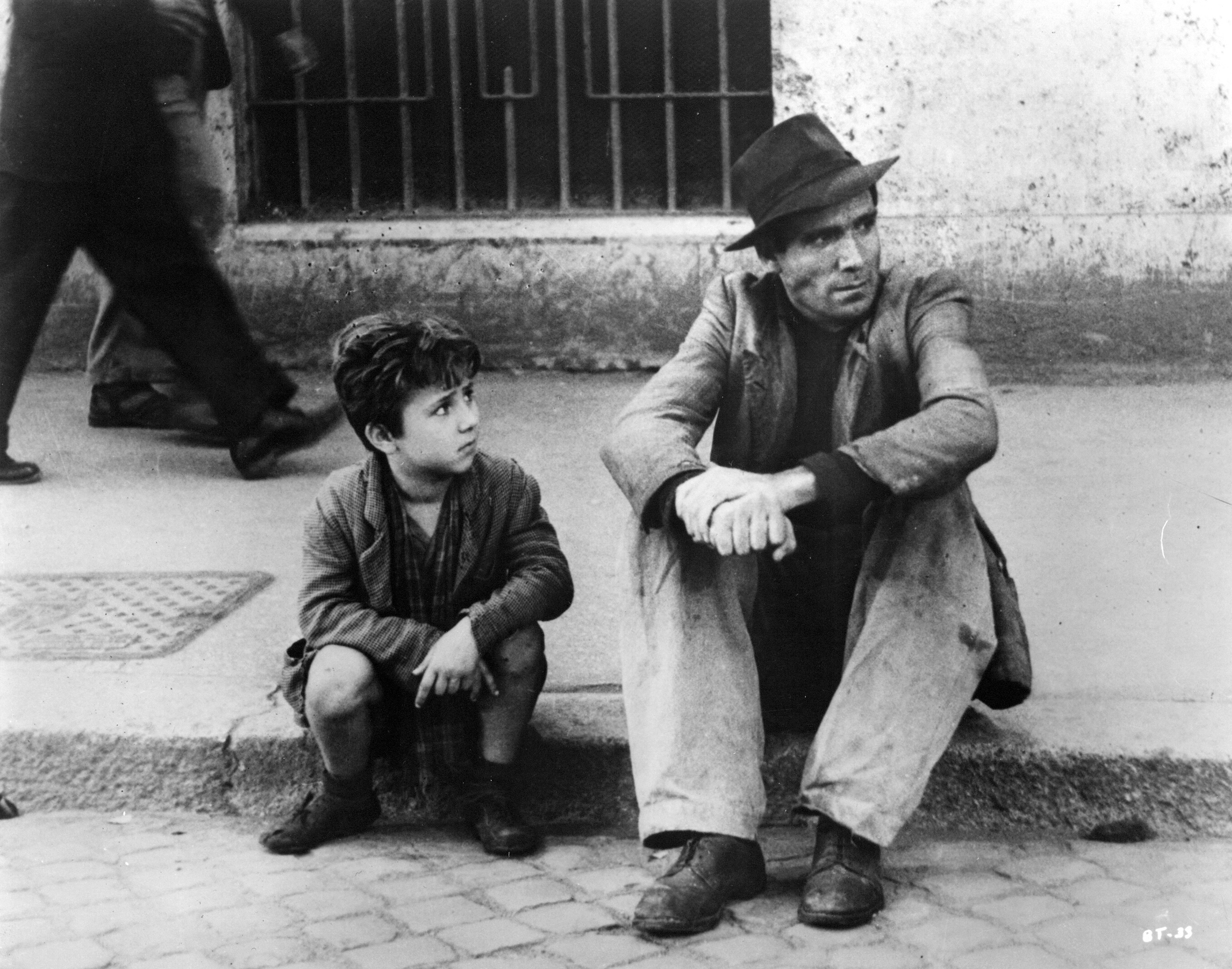
This is indubitably the least-known film featuring on the list. Directed by the Italian legend Vittorio De Seca, the film follows the story of a poor father searching post-World War II Rome for his stolen bicycle, without which he will lose the job which was to be the salvation of his young family. One scene in particular that comes to mind instantly on hearing the film’s name, is the one in which Antonio begs Bruno for forgiveness for stealing the bicycle, and Bruno obliges by hugging and petting his father. That moment of father-son love made people teary-eyed, and cemented its status as one of the greatest films ever made. The iconic cycle, and the Italian neorealism, inspired many works in the subsequent years. None however, dared to touch this perfect blend on emotion, redemption and forgiveness.
12. Dead Poets Society (1989)
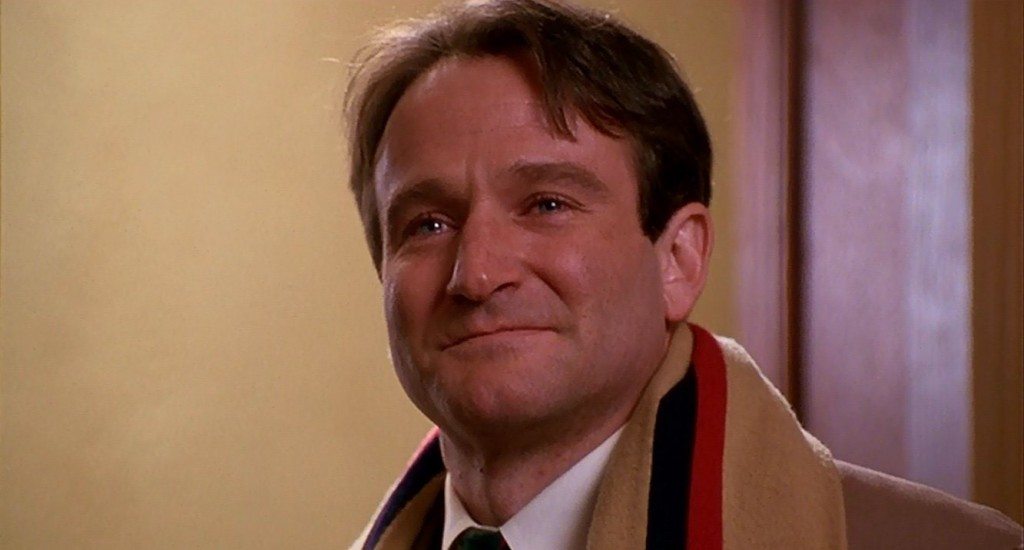
Set in 1959 at the fictional elite conservative Vermont boarding school Welton Academy, it tells the story of an English teacher who inspires his students through his teaching of poetry. Starring the charismatic and brilliant Robin Williams, the film is an ode to the unconventional teachers around the world, who go beyond books and printed texts to enlighten and edify their disciples. The anti-climax though dampens the moods of the audiences, the general tone and the underlying tenet of the film are enough to drive cinephiles to tears and ultimately satisfaction. “Carpe diem. Seize the day, boys. Make your lives extraordinary.” is even today remembered as one of the most iconic and inspirational dialogues in cinematic history.
11. To Kill a Mockingbird (1965)
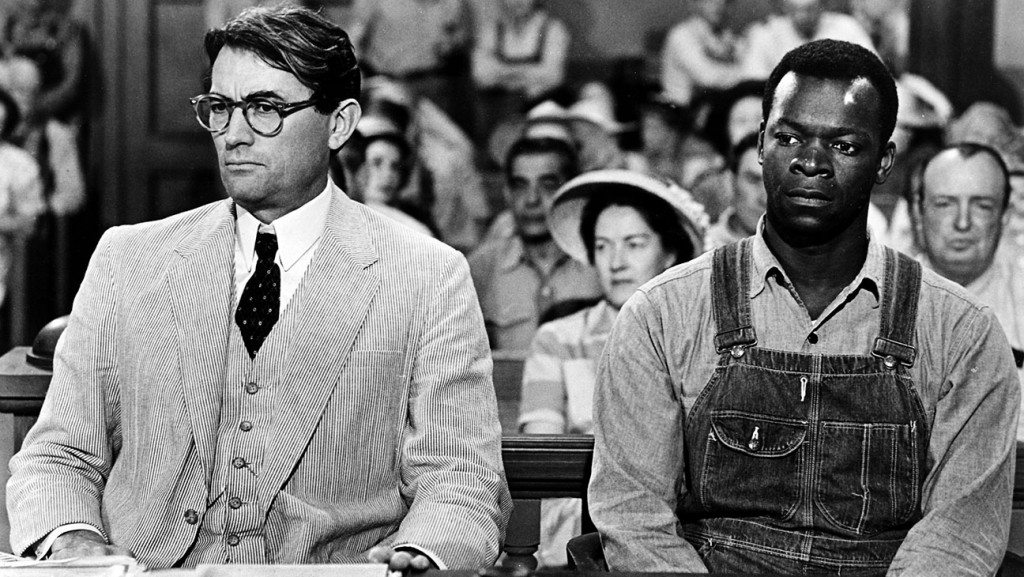
Harper Lee’s 1960 novel of the same name remains my favorite novel even today, having read the book three years ago. The 1962 adaptation of the novel directed by Robert Mulligan received universally overwhelming response, both critically and commercially. This perhaps remains the only pair in the list where I can diffidently say that the novel was better than the film. Not that the film was any lesser, but the book was so much more. Harper Lee in an interview said how much she “liked the movie. When he played Atticus Finch, he had played himself, and time has told all of us something more: when he played himself, he touched the world”. The movie was scene to scene a facsimile of the novel, with Gregory Peck earning inundated laurels and recognition for his portrayal of the taciturn lawyer. The film also marked one of the first appearances of Robert Duvall on-screen, bringing the character of the mysterious Boo Radley to life with much aplomb in a 10-minute cameo. It remains one of the greatest movies of all time, the same applying for the novel.
10. No Country For Old Men (2007)
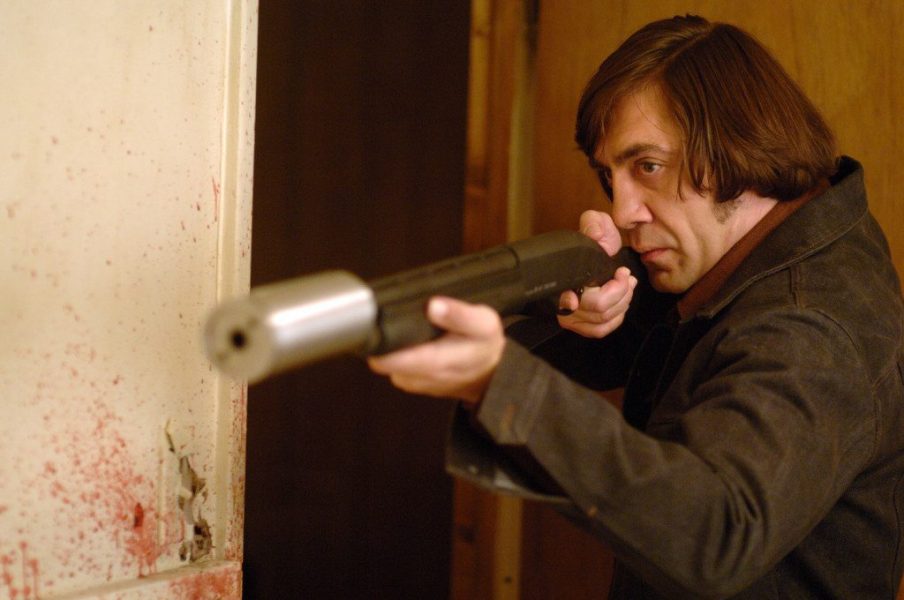
One of my personal favorites, the flick is adapted from Cormac McCarthy’s 2005 novel of the same time. While the dialogues are 90% verbatim, the way the Coens manage to bring the story to life with the vast vistas of never-ending beauty and the supremely brilliant Javier Bardem, playing the role of the antagonist Anton Chigurh. The Coens received the novel as a gift, by post, by none other than the great Martin Scorcese, who passed on the project (thankfully) and they immediately fell in love, just like me, With its dialogues, or the startling lack of it, and the gripping screenplay (the Coens skipped a good chunk of scenes), this engrossing tale of a man on the run for his life wins hearts, just like the novella. The beautiful cinematography and the harrowing and haunting portrayal of Anton Chigurh by Javier Bardem make the film a perfect example of true art.
9. The Shining (1980)
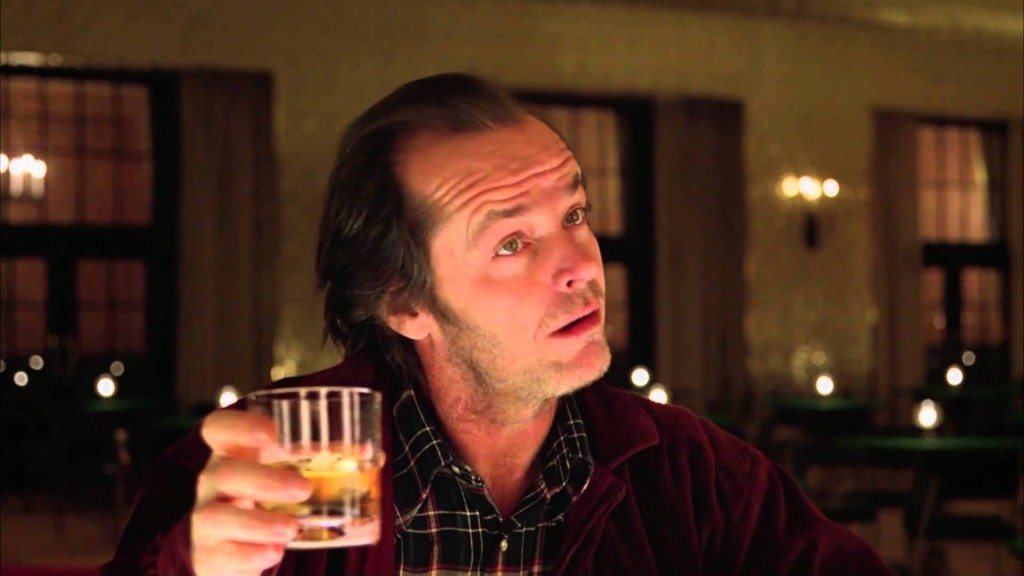
Directed by the master Stanley Kubrick, the film today remains one of the most iconic films ever made, thanks to the brilliant story and in particular, this improvised dialogue by Nicholson. This psychological horror movie has one of the most confusing endings of movies in the industry, with many having their own versions panning out to their convenience. Shadowing the six month stay of the Torrances at the Overlook Hotel and the impending killing spree Nicholson’s character embarks on, the film’s initial reviews were mixed. But the outstanding box office returns prompted reconsideration, which led to critical acclaim and several award nominations, and cemented its place as one of the greatest movies ever made.
8. 2001: A Space Odyssey (1968)

This sci-fi film remains even today one of the greatest films ever made. The pioneering use of CGI and special effects sent shockwaves through the industry at the time of its release. The film is also known for the use of the revolving set to shoot scenes in outer space, deprived of gravity. The driving force behind the film was none other than the virtuoso Steven Kubrick. The sentient AI Hal has been the inspiration for many recreations of the particular element, with Jarvis being one of the most prominent examples. The film follows a voyage to Jupiter with the super computer Hal after the discovery of a mystery black monolith affecting human evolution. It deals with the themes of existentialism, human evolution, technology, and extraterrestrial life. It uses sound and minimal dialogue in place of traditional narrative techniques, applies the use of classical music to create tension, the ambiguous imagery and a scientifically accurate depiction of a space flight.
7. Citizen Kane (1941)
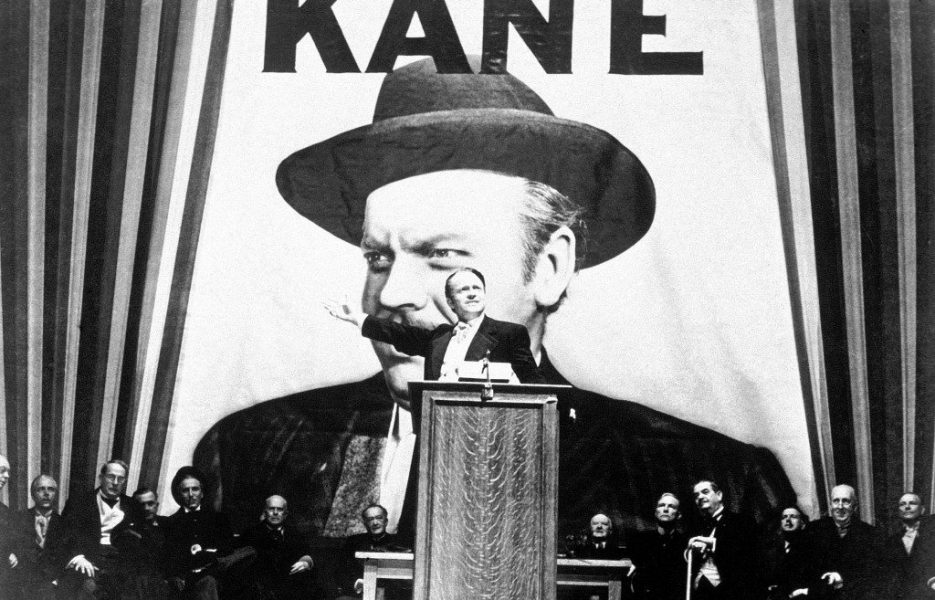
The epic mystery drama, considered the greatest movie of all time was a revolution the time it was released. The Wells-helmed flick is a quasi-biographical drama, based loosely on the life of the American newspaper magnate William Randolph Hearst. Narrated principally through flash backs, it is the founding provenance of non-linear storytelling used comprehensively in today’s cinema. The story is told through the research of a newsreel reporter seeking to solve the mystery of Kane’s dying word: “Rosebud”. It brought an innovative and precedent-setting realism in its cinematography and narrative structure. It changed the forthcoming vision of future auteurs in the best possible way.
6. Pulp Fiction (1994)
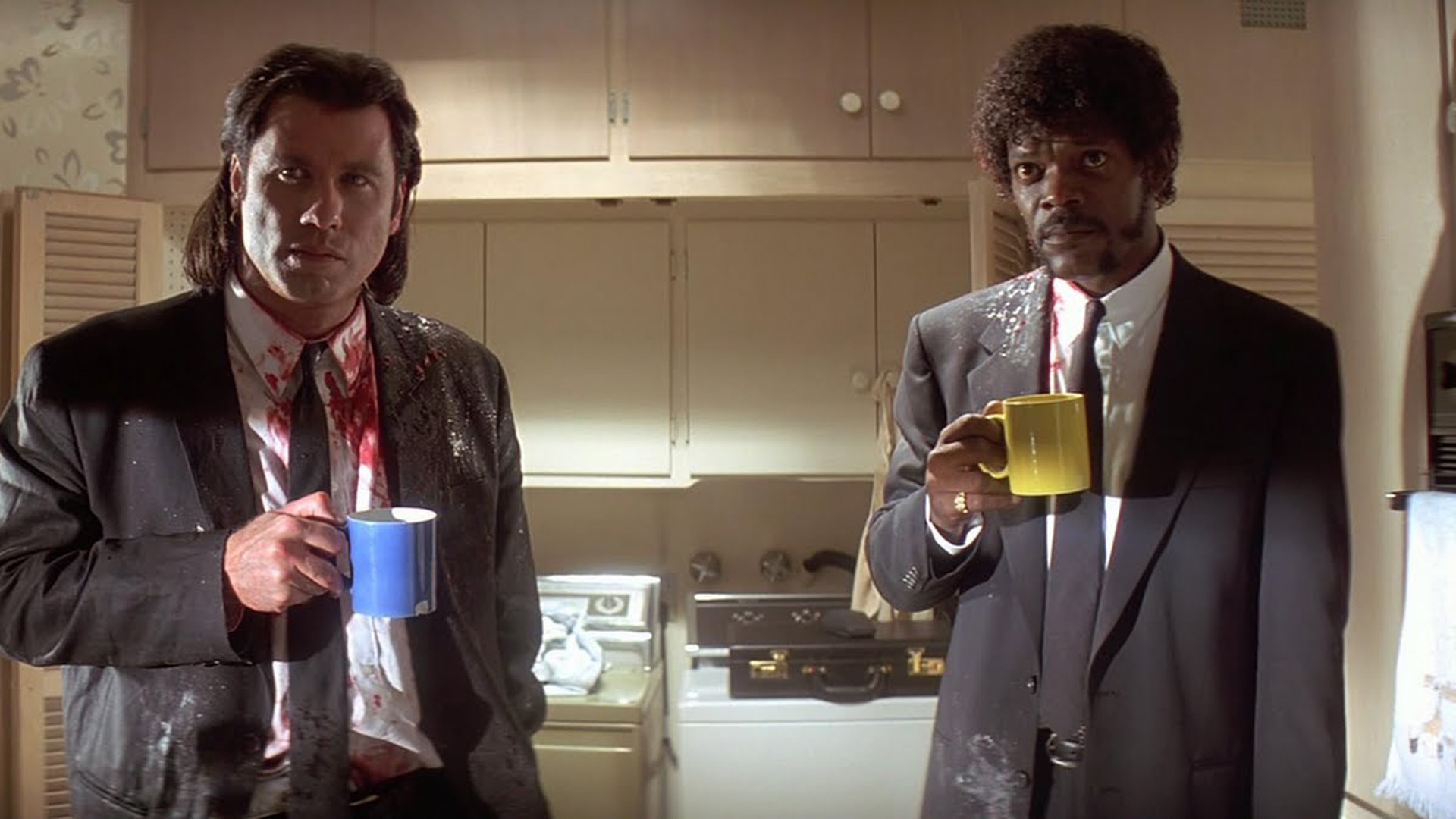
This film without doubt qualifies as the the most stylish and eccentric films ever made. A conception of Tarantino’s brainchild, the film is perhaps known for its excessive use of profanities, the high octane action and the non-linear story-line. he film’s self-reflexivity, unconventional structure, and extensive use of homage and pastiche have led critics to describe it as a touchstone of postmodern film. This dialogue is probably the best written and performed on screen : “The path of the righteous man is beset on all sides by the inequities of the selfish and the tyranny of evil men. Blessed is he who, in the name of charity and good will, shepherds the weak through the valley of darkness, for he is truly his brother’s keeper and the finder of lost children.”
5. Taxi Driver (1976)
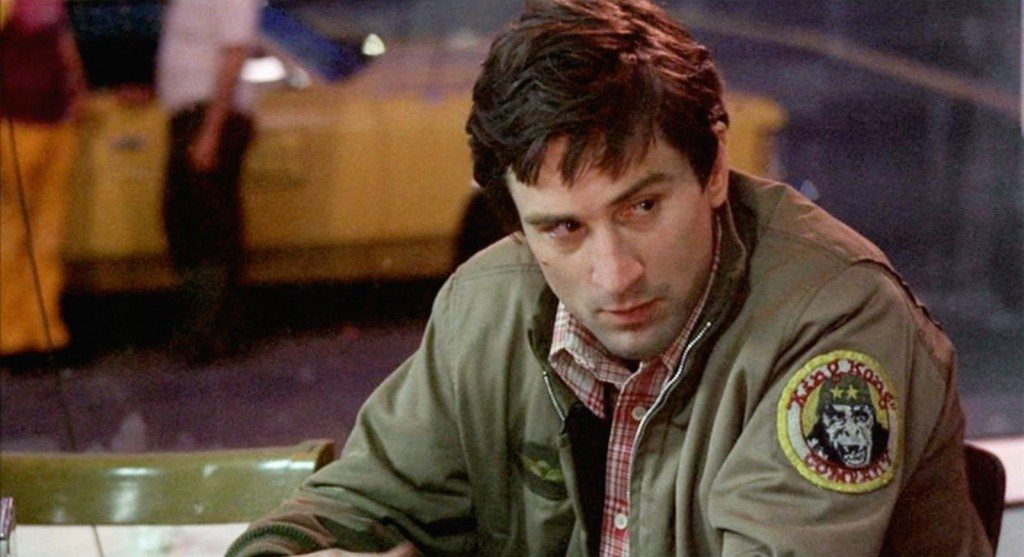
Martin Scorcese and Robert De Niro came to the forefront of the industry with the 1973 film ‘Mean Streets’, which changed the face of crime-thrillers. The pair got back and created another landmark film, ‘Taxi Driver’, which is panoramic-ally considered the provenance of the neo-noir psychological thriller genre. It shadows the tale of the 30 year-old Travis Bickle, a war veteran struggling to cope with the nuances of a normal life in the society. The recurring nightmares deprive him of his sleeps at night, or for that matter at any times, encouraging him to become a taxi driver. The film was also the debut film of Jodie Foster, whose role as a teenage prostitute garnered critical acclaim and earned her an Academy nomination. It also spring boarded the career of Robert De Niro, landing him his second Academy nomination and throwing him into global limelight. The dark themes of the film, coupled with genius improvised monologues (“You talkin’ to me?”) made the film a distinction in numerous crime movies and broke the barrier of a happy ending with much aplomb. Travis’ frustration, depression and loneliness were given prominence, and made the film revolve around it.
4. One Flew Over Cuckoo’s Nest (1975)
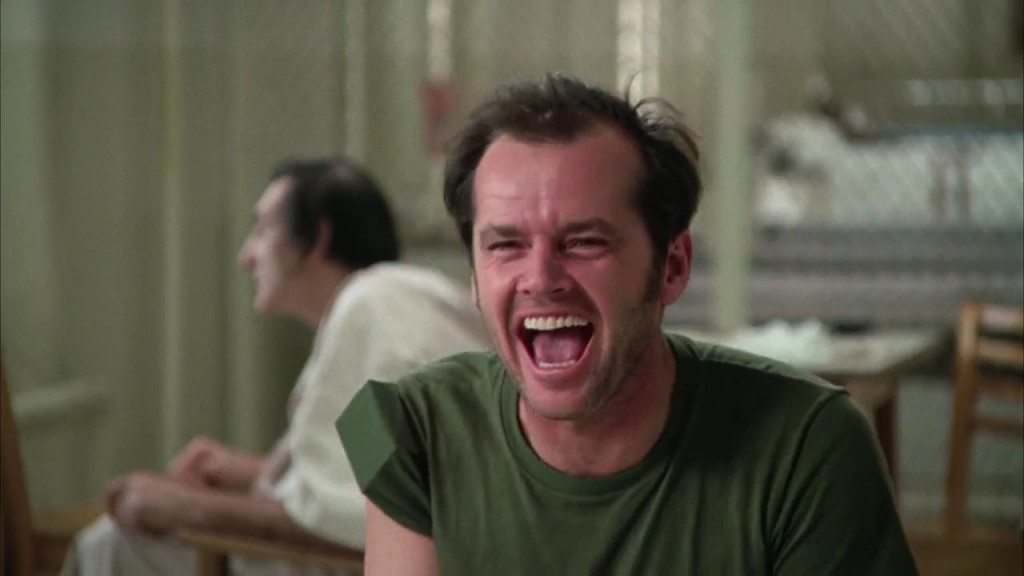
Adapted from the 1962 Ken Kesey novel, the drama stars the charismatic Jack Nicholson as the eccentric Randle McCmurphy, who feigns dementia to abscond conviction. This is the second of the three films to win the top five categories at the Academy Awards. The film is not only remembered for Nicholson’s award winning performance, but also the performance of Lousie Fletcher as the insouciant Nurse Ratched. Over the years her character has gained the status of the antagonist, something the author of the original novel has constantly repudiated. Exploring themes such as tragedy, humor, irony and self-depreciation, the film was a commercial and critical success, though Ken Kesey claims to dislike the film.
3. The Shawshank Redemption (1994)
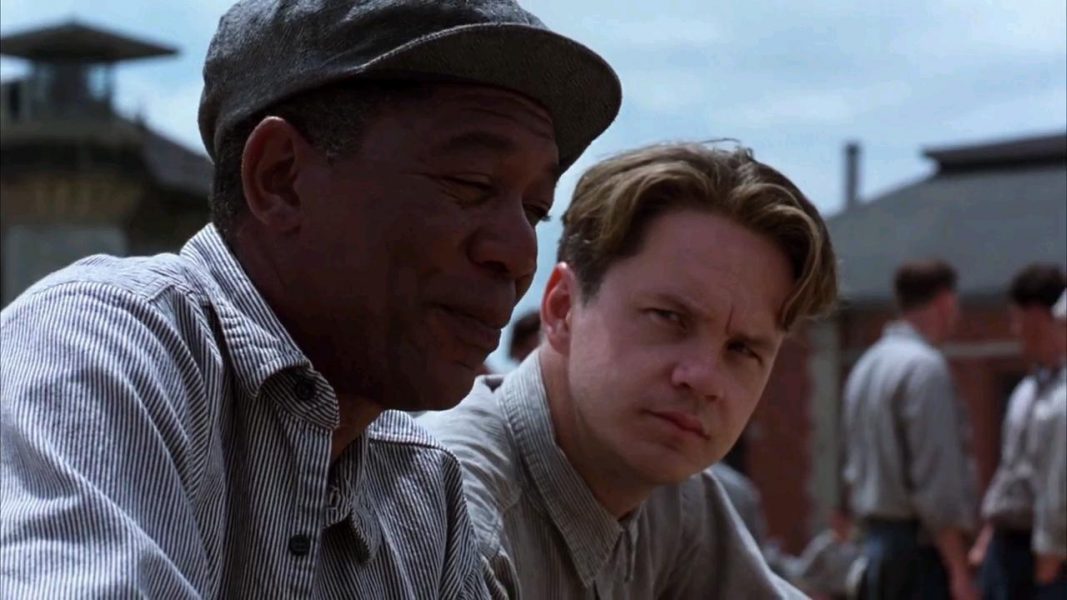
One of the two films based on Stephen King’s novella, this Darabont-helmed film is considered one of the greatest film of all time. Adapted from Rita Hayworth and Shawshank Redemption, It tells the story of Andy Dufrense, an accountant convicted of murdering his own wife, who through the course of the film is raped, assaulted and eventually starts keeping the guards’ accounts and the account of the Warden. The beautiful screenplay, with moments that make you drop your jaw in awe (the scene where Andy plays music for the inmates), with clever plot twists make the flick a journey of self-discovery and gives you a perspective of discerning life differently. Boasting of a stellar cast including Tim Robbins, Morgan Freeman and Clancy Brown, the film was commercially and critically acclaimed, not winning any Oscars (sigh).
2. Gone With the Wind (1939)
“Frankly my dear, I don’t give a damn!” is probably the most iconic dialogue of all time. The oldest film featuring on the list is ‘Gone With The Wind’. It won an unprecedented ten Academy Awards out of twelve nominations, creating several landmarks in the process. Gone with the Wind and its production have been explicitly referenced, satirized, dramatized and analyzed on numerous occasions across a range of media, from contemporaneous works to current eponymous works. The torrential love towards the lead pair and the romance in the film made it the most iconic film of its time, and the times thereafter. I simply run out of words and phrases to describe this ineffable film. Truly a masterpiece.
1. The Godfather (1972)
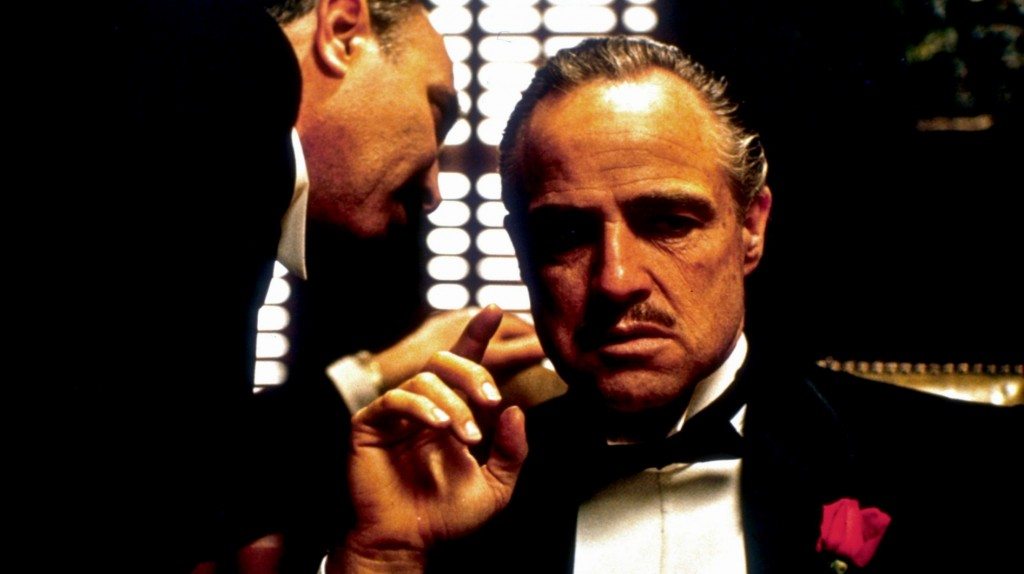
A book that caused a sensation and the film, considered today as arguably the greatest film ever made, ‘The Godfather’ revolutionized the mob-war genre and took the film industry by a storm. Detouring from its quotidian predecessors, the film tried to translate the point of view of the mobster’s conflict and dilemma protecting the ones they love to the audience. Based on Mario Puzo’s novel of the same name, the film didn’t glorify bad guys, but it glorified what the bad guys would do to protect their families. Innumerable production halts, countless antics of its stars and its dark theme cast an equivocal shadow on its completion. But director Francis Ford Coppola held his own, cast the people who had been etched into his relentless vision (if not for him, Marlon Brando and Al Pacino wouldn’t have been a part of the film). He took the audience into the mobs home, acquainted us with their secret family recipes and made us a part of christening their new-born, we saw something we had never seen before. The essence of the mobster genre changed forever and the legacy of the film lives on today.
Read More: Best Hollywood Movies of the 1990s

You must be logged in to post a comment.